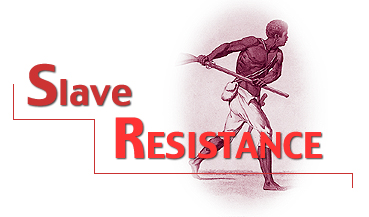 | 
| I launched this class with one simple goal: to display on the web some of the wonderful sources for the study of pre-emancipation Caribbean history that the University of Miami has in its archives and special collections. [LINK TO ASC HOMEPAGE] Few scholars know about these extensive collections, and too few people in the Caribbean have physical, immediate access to the sources that describe their own histories. Along the way, something happened. The first goal has been, at least in part, achieved, but new tasks—new things that this website could accomplish—came up as well. First, there was the historical and moral question of resistance to slavery, one that still has echoes today. Second was the experience and the lessons of teaching a class with a group web project as the course’s ultimate goal. Third, the class members themselves created their own goals for the class, and since they are the ones who ultimately made the class succeed or fail, those tasks are of the utmost importance. |
 First, came the question that the students had to address as they came up with a rationale for the website. Why should anyone read about slavery, over a century after the tragic institution ended? The answer: because the past is connected to the present. People try to use the past to serve different rhetorical ends: some will, for instance, argue that racism or racist policies make sense because those who did not overthrow or at least resist the institution of slavery somehow signed away the rights of their descendants. Supposedly, those who did not believe in freedom enough to risk their lives passed on some sort of dependence to the culture they created. Supposedly, the countries of the Caribbean are unfit for true political and economic independence because they are composed of the descendants of allegedly passive slaves, who have not the initiative or the will to create nations. European and North American writers have written such things about Haiti, Jamaica, and the other Caribbean islands for well over a century now, and one can see similar patterns in the writings about African-Americans as well.
There many contradictions in such attitudes: In the case of Haiti, the white-dominated western countries have spent two centuries punishing it for its people’s revolution against slavery. But in part, people can believe such things because many historians have written about slavery as if the enslaved did not try to change their own conditions. Yet, as the students of History 300 have shown, the enslaved did try, over and over again, usually running tremendous risks in the process. In Haiti, they overthrew slavery directly; in the English colonies, the Maroons held out for years against the English in Jamaica, and former slaves like Olauduh Equiano were major parts of the abolitionist movement in the English-speaking world. We hope that this class will help to highlight the role and impact of resistance to slavery by the enslaved themselves. Opposition to slavery was constant, and the enslaved themselves played a major role in bringing about its end. We don’t need to hear any longer the myths about black passivity and submission to slavery, or about Caribbean cultures as inherently dependent.
|
 The second new task was the use of a group project like this as a teaching technique. I was amazed: By the middle of the semester, this thing, which I had launched as an idea, had taken on a life of its own. And the reason was simple: the students were responsible, ultimately, for making it happen. If they didn’t do any research, come up with ideas, find illustrations and maps and documents, organizes group statements and essays, no web design magic, then there would be no website. And they made sure it happened. In the process, they took charge of their own learning.
That ultimately is what active education is about: not teachers pouring knowledge into the students’ ears, but teachers leading students to the point where they can ask their own questions, find their own answers. Meanwhile, the teacher serves as mentor, sounding board, debating partner: not as (allegedly) all-powerful dispenser of hidden knowledge. The process can be a bit disconcerting for those used to more traditional classroom settings, where only one person (the instructor) speaks at a time (and in fact speaks almost all of the time). But I remember one day in the archives about six weeks before the end of the semester.
I noticed that almost every student was talking to another student, at full blast. "Oh no," I thought, "What if they are all arranging where to meet up on South Beach, or who is dating who?" I sat still in the reading room, straining to separate individual conversations from the overall babel. Instead of what I had feared, they were saying things like "Where is Garran-Coulon’s speech?"; "Have you found any good illustrations of slaves dancing or performing music?"; "Do you think active and passive resistance are morally equivalent?"; and "How can you argue that men and women had similar experiences as slaves?" They had become scholars and not just students, active learners rather than passive recipients. I was very proud, and at the same time humble because the fact is that the members of the class were the ones who had made that leap, and they had done so by their own efforts, not by mine.
| Click here to read the student's comments regarding this class
 |





 Click here to read the student's comments regarding this class
Click here to read the student's comments regarding this class